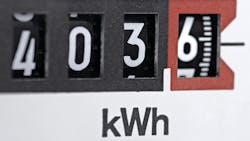Study: Demand, Policy and Tech are the Energy Economy’s Biggest Drivers
The energy transition may be giving way to a new energy economy based on delivering on demand, keeping pace with new technology and providing affordable power, according to a study by West Monroe Partners.
“Transformation is accelerating, and the margin for error is narrowing. When things go wrong, the consequences ripple across economies, communities, and ecosystems,” according to the study’s executive summary.
Federal policies, state mandates, extreme weather events and emerging technologies will continue to be some of the most significant drivers for the energy industry.
West Monroe’s study was based on a 2025 survey of 500 utility leaders nationwide. The study found that only 25% of utilities have well-defined plans for accommodating large new loads from data centers.
The adoption of AI is still growing, but there are also questions about the technology’s return on investment. Only 13% of those polled can say that AI currently demonstrates a clear return on investment.
“AI has the potential to optimize and accelerate decarbonization efforts. Seventy-five percent of utilities are currently using or planning to adopt AI within the next year,” according to the study.
Public policy is both a boost as well as a constraint, with utilities trying to strike a balance between investing in new technologies and meeting sustainability and reliability goals.
Finally, the transformation of energy production at the grid edge is outpacing utilities’ readiness for it. Only about 23% of utility representatives polled said they felt very prepared for distributed energy resource integration.
“Nearly all surveyed utilities (97%) have established energy transformation targets, with 78% operating under moderate to very high regulatory pressure to decarbonize,” according to the report.
About the Author
Jeff Postelwait
Managing Editor
Jeff Postelwait is a writer and editor with a background in newspapers and online editing who has been writing about the electric utility industry since 2008. Jeff is senior editor for T&D World magazine and sits on the advisory board of the T&D World Conference and Exhibition. Utility Products, Power Engineering, Powergrid International and Electric Light & Power are some of the other publications in which Jeff's work has been featured. Jeff received his degree in journalism news editing from Oklahoma State University and currently operates out of Oregon.
